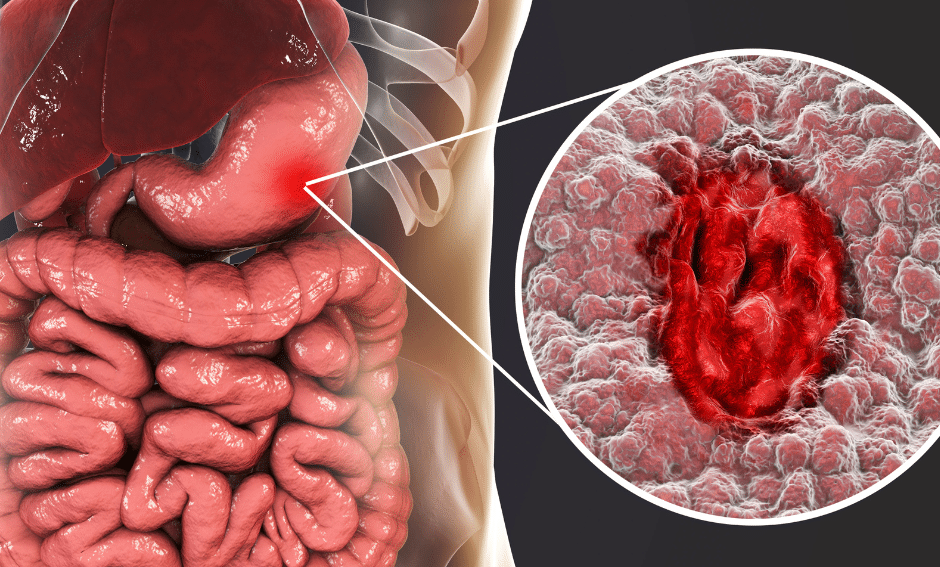Why Eating Too Much Dairy is Bad for Your Digestive System


Let’s face it, dairy has a special place in a lot of people’s hearts when it comes to food. Some people can’t bear the thought of having their coffee without cream, hamburgers just aren’t the same without cheese, and butter just seems to make everything more flavorful. It’s so popular, in fact, that millions of Americans who are lactose intolerant consume dairy anyway. People with lactose intolerance decide that it’s better to either suffer with the consequences or take a fast acting relief pill than to go without dairy products! We know all of this, but what a lot of people don’t know is that too much dairy can be detrimental to the health of your digestive system. While it’s most certainly not the worst thing you can be consuming, too much of anything can be harmful. Here are some reasons why eating too much dairy can be bad for your digestive system.
Lactose Intolerance and Dairy
It’s important to note that nearly 50 million Americans show signs of lactose intolerance, even more don’t even realize that they’re lactose intolerant. So what is lactose, anyway? Lactose is actually a type of sugar that occurs naturally in the milk of most mammals, including the most common American milk producer: cows. Within humans exists an enzyme called lactase, which is the enzyme that breaks down and digests lactose. This enzyme generally deteriorates and lessens as time progresses so that by the time they reach adulthood, the majority of people lack the proper enzyme to digest lactose, making them lactose intolerant. Over-consumption of dairy products can actually cause those lactase enzymes to deplete faster as they are being overworked. Signs of lactose intolerance include stomach bloating, gas, stomach pain, nausea, and diarrhea after consuming dairy products. Some experts believe that a break from dairy products, followed by gradual introduction of them back into your diet can actually promote lactase production, however studies aren’t entirely conclusive.
Fat in Dairy
Milk products are typically extremely fatty and may have saturated fat, however this isn’t necessarily a bad thing. In fact, it can be extremely beneficial, especially to babies and young children. Because of its vitamins and minerals, full fat dairy in milk has actually been shown to promote brain growth and improve digestion in some children who do not produce enough bile in their digestive systems to function properly. With that being said, too much of anything is bad for you. Consuming too much dairy can cause nausea, stomach pains, and diarrhea, even if you’re not lactose intolerant. Drinking or consuming too much dairy too quickly can actually cause vomiting because your body cannot process and digest it quick enough.
Is Dairy Really Bad For You?
This is the question that everybody really wants to ask and the answer is this: yes and no. Dairy products have calcium, vitamins and milk protein which host a slew of benefits for humans, especially when they’re young. The fatty acids and fat soluble nutrients found in milk and other dairy products can promote things such as brain growth, bone density, skin health, and digestive system functionality. Of course, if you’re lactose intolerant, these benefits do not outweigh the health problems of consuming dairy, especially cows milk. There are many alternatives to dairy foods like lactose free milk. Most any dairy products, even ice cream now have a lactose free option. However, if your digestive tract can handle consuming dairy, then it can be a staple of one’s diet. As with anything, however, dairy should be consumed in moderation. Consuming too much can cause digestive problems, not to mention that a high dairy diet can be very fattening if not balanced and coupled with physical activity. As Dr. Gingold says, “Dairy does have more fat than many other products. Lactose intolerant people can clearly be affected worse by this, however, dairy is good and encouraged when not overused”. So don’t be afraid to have a glass of milk or a slice of cheese, just don’t over do it!
Top Gastroenterologists in New Jersey
At Digestive Healthcare Center, we give those in NJ access to care provided by a team of gastroenterologists who always put the health of each patient first. Our physicians have years of training and experience in diagnosing and treating various gastroenterological conditions, and we want to help you get on track to healthier and more comfortable living. Learn more about the members of our team:
- Charles A. Accurso, MD, FACG
- Gary F. Ciambotti, MD
- Cory Vergilio, MD
- Alan R. Gingold, DO
- Claudia Barghash, MD
- Mark Greaves, MD
- Nader N. Youssef, MD, FAAP, FACG
- Gina Theofanidis, APN-C
Conditions We Treat at Digestive Healthcare Center in NJ
As discussed above, lactose intolerance is an extremely common condition in the United States. There are a number of other digestive health conditions that can cause similar symptoms, along with others that cause different symptoms but still affect the digestive tract and the way your body functions. Since symptoms of certain conditions can overlap, it is crucial to see a gastroenterologist who can pinpoint the cause of your symptoms and put you on the right treatment path. Learn more about the conditions we treat below – a visit with one of our physicians might be all you need to start living more comfortably.
- Abdominal Bloating
- Anorectal Dysfunction/Pelvic Floor Dysfunction
- Bloody Stool
- Celiac Disease & Gluten Sensitivity
- Colorectal Cancer
- Constipation
- Diarrhea
- Diverticulitis
- Esophageal Cancer
- Fatty Liver Disease
- Fecal Incontinence
- Gallstones
- Gastroesophageal Reflux Disease (GERD)/Acid Reflux
- Hemorrhoids
- Inflammatory Bowel Disease (IBD)
- Irritable Bowel Syndrome (IBS)
- Malabsorption
- Polyps
- Rectal Bleeding
- Ulcers
Personalized Gastroenterology Care in NJ
If you’re experiencing any type of stomach or intestinal discomfort or pain, dairy may be the least of your concerns at the moment. For everything from dairy to stomach pain, it’s important to consult with a gastroenterologist to ensure proper digestive health. If you’re looking for the best gastroenterology team around, look no further than those at the Digestive Health Center (DHC). With convenient locations in Hillsborough, Somerville, and Warren, New Jersey, DHC offers physicians with unmatched experience, cutting edge technology, and a wide array of services to keep you at an optimal digestive health. We also offer convenient telemedicine virtual visits from the comfort of your home! We take great pride in ensuring that all of our patients are well informed, comfortable, and guided through every decision and procedure that they may be faced with. If you or a loved one is experiencing some digestive issues, then feel free to contact us to set up a consultation so we can help you in any way that we can. Come in and let us help you, because at Digestive Health Center, the patients always come first.
Make an Appointment for Comprehensive Digestive Care in NJ
At Digestive Healthcare Center, we want each patient at our three offices in New Jersey to feel confident about their digestive health. We encourage you to contact us today to make an appointment with one of our expert gastroenterologists – don’t wait to start putting your digestive health first!
Recent Blogs
Learn more about all things digestive health and wellness by checking out our recent gastroenterology blogs.

Infusion therapy has become a vital treatment option for individuals with Crohn’s disease, offering relief when traditional medications may fall short. This method delivers medication directly into the bloodstream, providing quicker and more targeted effects to help manage inflammation, reduce symptoms, and improve quality of life. For those with moderate to severe Crohn’s disease, infusion […]

The Advancement of Ulcerative Colitis Treatment Ulcerative colitis (UC) is a chronic inflammatory bowel disease (IBD) that affects the lining of the colon and rectum. Those diagnosed with UC often experience flare-ups that can significantly impact their quality of life. Fortunately, advancements in medical treatment have made managing this condition more achievable. One option is […]

Diverticular disease and diverticulitis are related digestive health conditions that affect the large intestine (colon). With diverticular disease, small, bulging pockets develop on the lining of the colon. When these pockets become inflamed or infected, the condition is called diverticulitis. They are very common – especially after age 40 – and rarely cause problems. At […]
























